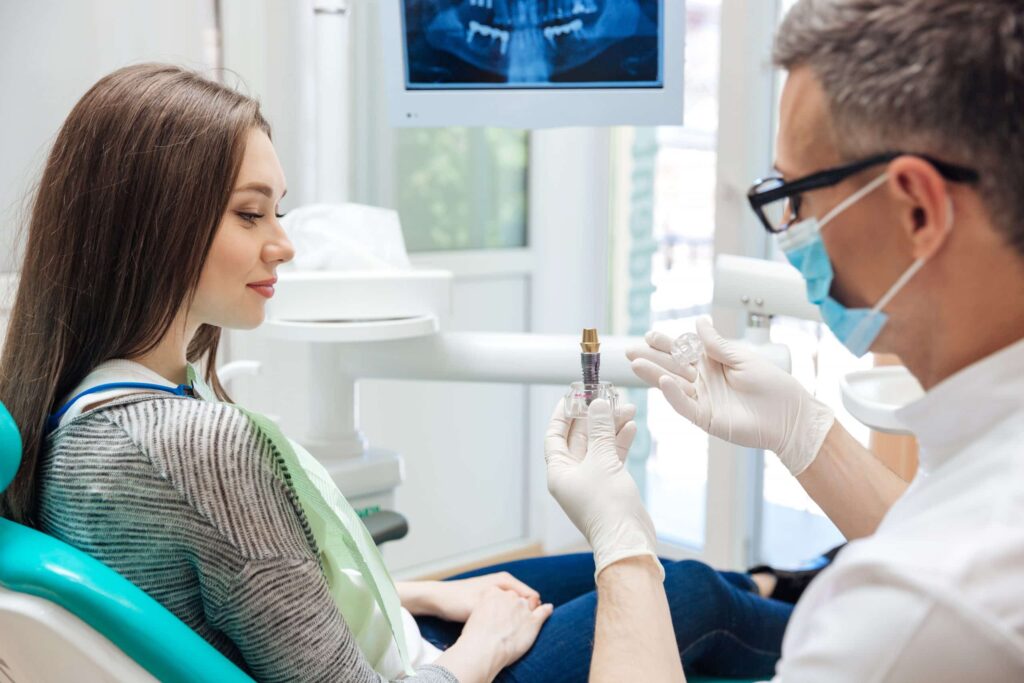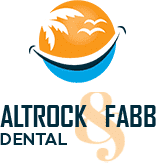Do you need dental implants? At Altrock Fabb dental, we offer comprehensive options for dental implants. Pacific Beach residents may want to consider implant treatment if they’re experiencing any of these warning signs:
1. You Have a Missing Tooth
It’s always best to prioritize your natural teeth. But when a tooth can’t be restored and needs to be removed, you want to replace it as quickly as possible. Any missing teeth—visible or not—will leave a lasting impact on your oral function and overall tooth alignment.
Dental implants are the only tooth replacement that looks and feels like an anatomical tooth. Best of all, they’re non-invasive to your adjacent teeth and designed to last for decades. They’re helpful no matter how many teeth are missing.
2. You Don’t Qualify for a Dental Bridge
Although bridges are a traditional choice for replacing teeth, not everyone qualifies for this treatment. A bridge requires healthy teeth on either side of the missing one for support. If those teeth are missing themselves or too weak to support a bridge, they jeopardize the entire restoration.
Since implants stand independently of other teeth in your mouth, they can be placed practically anywhere as long as there’s enough healthy bone to support them.
We can also use dental implants in sets to support longer dental bridges, filling in as many as 3-4 teeth (or more) at a time.
3. You Don’t Like the Idea of Wearing a Partial or Dentures
Does the thought of “taking out your teeth at night” make you feel embarrassed or self-conscious? Conventional dentures and partial dentures have to be removed at bedtime, otherwise, you can develop infections or premature bone loss.
Since implants are permanently fixed in place, there are no “teeth” to remove when you’re going to bed (with the exception of implant-stabilized overdentures). They become a permanent part of your smile, regardless of how many implants you have.
4. You Want a Permanent Tooth Replacement
Dental implants are the only tooth replacement that’s durable enough to last for your entire life. They’re essentially a “once and done” restoration, providing the best return on investment of any missing tooth solution in modern dentistry.
Since implants physically integrate/bond with the supporting bone around them, they become a permanent part of your smile. As long as you care for them as directed, the failure rate is extremely low (less than 1-2%).
5. You’re Having Trouble Eating
Missing teeth can make it difficult to eat nutritionally balanced meals. Especially foods like fresh fruits, vegetables, and meat. If you’re shifting the food to the other side of your mouth to chew, it can lead to premature tooth wear and joint pain.
Implants are physically stronger than anatomical teeth, so they’re capable of biting and chewing all types of foods. From fresh apples to a nice juicy steak, you won’t have to eat softer, processed foods during mealtime.
6. You Want to Avoid Bone Loss and Changes in Your Facial Profile
Every time someone loses a tooth, the bone at that portion of their jaw begins to shrink (resorb.) This triggers a premature aging process in your facial profile since it causes a shallower, weaker frame behind your lips, cheeks, and facial tissues. If there’s extensive bone loss, your face may look years older than it really is.
On the other hand, dental implants promote healthy bone density and encourage new bone growth at their point of insertion. This effect delays or counteracts bone loss and subsequent aging in your face, helping you look as young as you feel.
7. You Think Dental Implants Aren’t Right for You
Are you still asking things like, Why get dental implants? Do I need dental implants? Are implants right for me?
In reality, dental implants (Pacific Beach) can be more life-changing than you realize. You at least owe it to yourself to find out more about what they have to offer.
It’s Time to Make a Change
Are you experiencing any signs you need dental implants? If so, be sure to ask, “Do I need dental implants?” during your next visit to Altrock Fabb Dental. We’ll review your oral conditions and biting patterns, and determine the best options for your smile’s needs.


